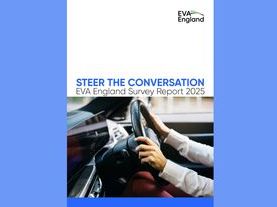The BVRLA and other industry bodies have been sharing their views following last week’s Autumn Budget announcement. Views from across the industry include:
The BVRLA and other industry bodies have been sharing their views following last week’s Autumn Budget announcement. Views from across the industry include:
SMMT chief executive, Mike Hawes:
“[It] contains some positive measures and we are pleased to see a renewed commitment to new and future vehicle technology. The investment in charge points and new incentives to encourage the take up of electric cars is a positive step to boost buyer confidence, […] however, it’s disappointing that there is no additional funding for the incentivisation of plug-in hybrids.
“Our greatest concern is the continuing mixed messages around diesel which will only deter and confuse the public further. Diesel buyers will not face any additional taxation for the next six months, but thereafter, will face additional charges which will undermine fleet renewal efforts, which are the best and quickest way to address air quality concerns.
“Manufacturers are investing heavily in the latest low emission technology, however, it’s unrealistic to think that we can fast-track the introduction of the next generation of clean diesel technology which takes years to develop, in just four months. This budget will also do nothing to remove the oldest, most polluting vehicles from our roads in the coming years.”
RAC head of external affairs, Peter Williams:
“The Chancellor has chosen to be relatively light touch when it comes to taxing new diesel cars [while] current beleaguered owners of diesel cars can breathe a sigh of relief that they will not be punished further by the Treasury […] The side effect of today’s announcement however might be that there is a risk therefore that it might encourage some to stay with their older diesel vehicles.
“His decision to increase the diesel surcharge on company car tax appears to be more about revenue-raising rather than using tax to encourage drivers to opt for a particular type of vehicle.”
Chargemaster chief executive, David Martell:
“The £400m announced to support EV charging infrastructure is good news for charge point suppliers and operators such as Chargemaster, and we hope that some of this funding will be directed towards preparing network connections and reinforcing the electricity grid where required.
“The Chancellor’s clarification that employees who charge their electric car at work will not face any benefit-in-kind taxation is great news, both for EV drivers and employers, giving businesses even more reason to install charging points at their premises for their employee, fleet and company vehicles.”
Greenpeace clean air campaigner, Paul Morozzo:
“Consumers need help to switch to electric vehicles, so this is a welcome investment. Investing more now means the UK could secure a leading share in the burgeoning electric vehicle technology market, bringing the UK revenue and skilled jobs.”
Freight Transport Association:
“The Chancellor’s decision to freeze the rate of duty on fuel is welcomed by the logistics sector, which is already battling inflation at a five-year high, but a cut would have done far more to boost the economy.”
Road Haulage Association chief executive, Richard Burnett:
“Fuel duty makes the UK less competitive - we have the highest fuel duty in Europe - nearly 50% higher than the European average. And despite the 7-year freeze, at 57.95 pence per litre, fuel duty remains grossly excessive. It has a negative effect on everything we buy and makes all UK made goods more expensive to transport.”
Cap hpi UK senior forecasting editor, Andrew Mee:
“The changes to VED announced for April 2018 will have little impact on widespread diesel values and new car registrations.
“The changes to VED will typically equate to increases of around £20 for the first year and will have very little impact on diesel registrations and values. The additional 1% diesel supplement on BIK will further encourage company car drivers to switch from diesel but the resulting fall in registrations will help to support used diesel values in the future.
“This is a Budget which reinforces some of what we have previously predicted. We still anticipate new car registrations in 2018 to follow the ongoing pattern of recent years and shift away from diesel into petrol and AFVs. We’ll also see used diesel values deflate year-on-year slightly more than petrol values. There are marked variations according to vehicle sector and this deflation is most prominent in the small vehicle sector whereas, the impact will be less pronounced in larger car sectors where diesel is strongest.”
The press release detailing the full response from the BVRLA can be read in full here.





